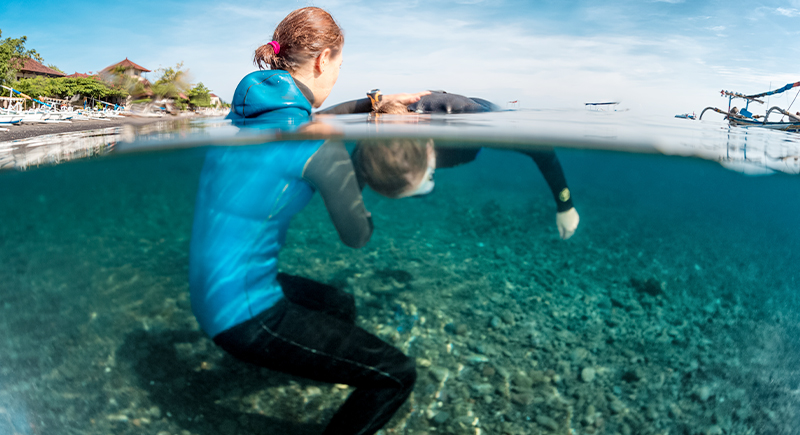The Story of the Man Who Set a 24-Minute Breath-Hold World Record
Budimir Šobat spent his early years chasing extremes — excelling on the court, pushing limits in the gym, and eventually losing himself to alcohol. Everything changed in 2000 when his daughter Saša was born with brain damage. Doctors said she might never walk or talk, and that became his life’s purpose.
He quit drinking, devoted himself fully to her care, and slowly rebuilt his life around that mission. Years later, he discovered freediving, a sport that demands absolute calm and control. In March 2021, he held his breath underwater for nearly 25 minutes, setting a new world record. But the story behind that number runs much deeper than the stopwatch.
Breaking a Record That Few Understand
In March, Šobat submerged himself in a pool in Sisak, Croatia. After 30 minutes of breathing pure oxygen—a legal step for this category—he remained underwater for 24 minutes and 37 seconds. Oxygen-assisted static apnea allows longer times by flooding the body with oxygen before submersion, but it also introduces serious risks, including blackout and oxygen toxicity.
During the attempt, the athlete drifted into a semi-sleep state, something he had mentally trained for. A stray bubble touching his face woke him up mid-hold, which could have triggered a panic attack. Instead, he repeated calming mantras and stayed focused.
At 17 minutes, his coach gave a signal. Šobat endured the final stage—marked by violent diaphragm spasms—and resurfaced just under the 25-minute mark. Instead of celebration, he changed clothes, met his family, and returned to his daily routine. He’d achieved the record but never treated it like a spectacle.
The Long Road to Physical and Mental Control
Šobat only discovered freediving at 46, after decades of physical training. By then, he had already been a soldier, a national bodybuilding champion, and a nightclub bouncer. What set freediving apart for him was the emotional endurance involved. His early attempts were done while still smoking 40 cigarettes a day. He eventually quit, dropped excess weight, and trained six days a week.
Static apnea requires athletes to remain motionless while holding their breath, which makes mental preparation more critical than movement or strength. At first, Šobat struggled to find the right headspace. Visualization and meditation techniques didn’t work. But he realized he had already spent years cultivating patience while sitting silently with Saša, waiting for gestures or responses.
He began using that same emotional focus to still his mind during breath-holds. The results came quickly. By 2018, he had placed third in the world indoor championships. He continued refining his approach as he balanced physical conditioning with a calm psychological presence.
Training Fueled by Family Commitment

Image via iStockphoto/mihtiander
Saša’s birth completely changed Šobat’s life. She was diagnosed with cerebral palsy and, later, autism and epilepsy. Doctors told the family she might never gain full mobility or independence. They recommended an intensive, daily therapy routine lasting five to seven hours. Šobat and his wife gave up nearly everything to follow it.
Tasks such as stretching Saša’s neck or fingers took immense effort. It was painful for both of them, but skipping wasn’t an option. They worked in shifts; when one parent was training her, the other would sleep. For years, their lives followed this schedule.
At this point, freediving became an outlet only after he had already learned how to endure discomfort for someone else’s sake. When people now ask about his ability to tolerate pain, he points to those early days with Saša.